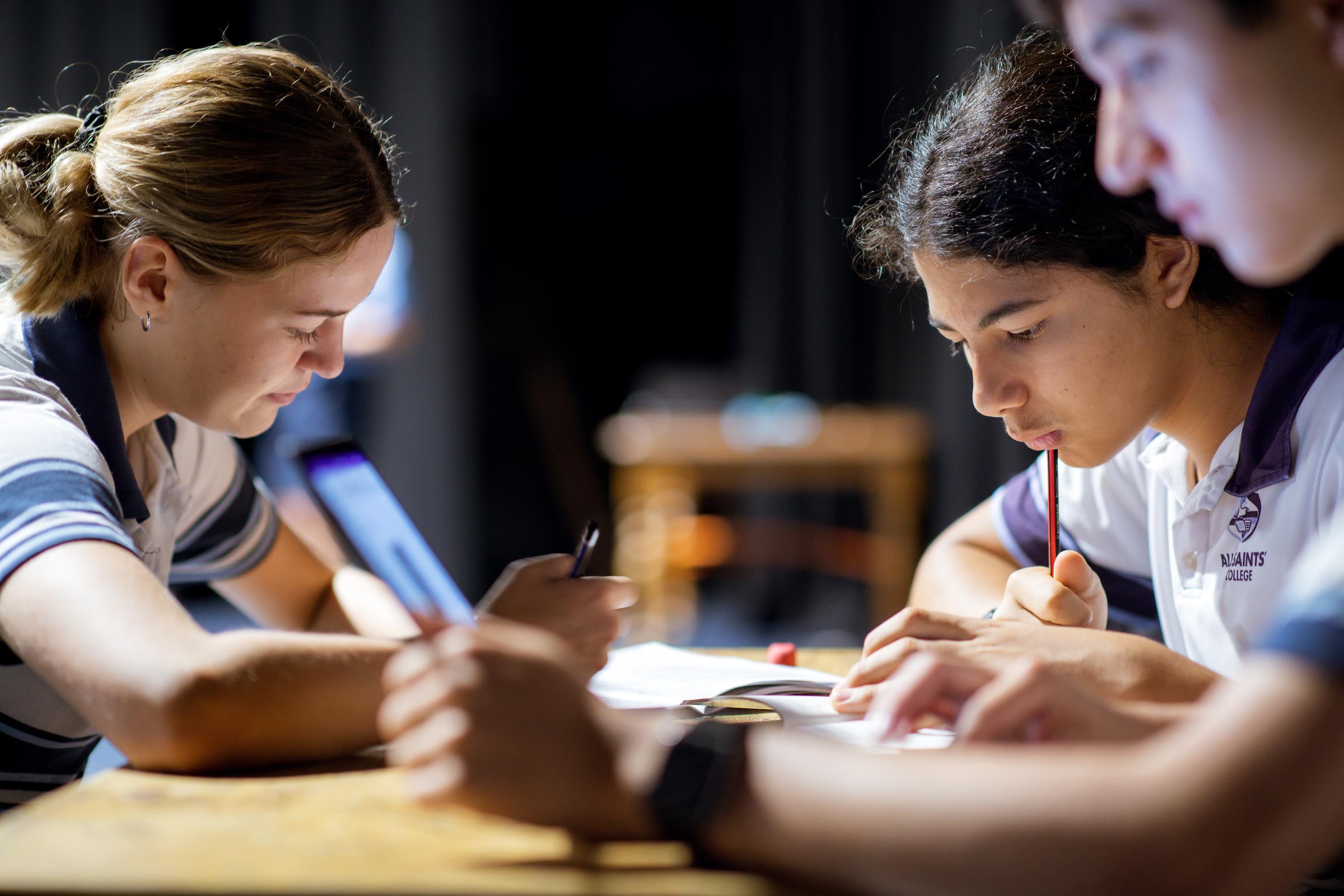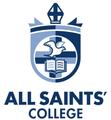ENGLISH LEARNING AREA

ENGLISH COURSES
To meet the requirements of the Western Australian Certificate of Education (WACE), students must study at least 4 units of an English course post Year 10 (ie they cannot repeat units). There are four options available; General English, ATAR English, ATAR Literature, or ATAR English as an Additional Language or Dialect (for students who meet the eligibility requirements). Students may study more than one English course (eg ATAR Literature and English).
There are two main pathways available to Year 11 students, ATAR or General. The ATAR pathway will ensure students are eligible for direct entry into tertiary institutions if they achieve the prerequisites set by the individual institutions. Students on either pathway will be eligible for TAFE, if they meet the prerequisites prescribed.
Pathway Year Stage
English or Literature ATAR
Year 11 Units 1 and 2
Year 12 Units 3 and 4
English General
Year 11 Units 1 and 2
Year 12 Units 3 and 4
Students need to carefully consider the English Pathway that they will study in Year 11. If they achieved a ‘C’ grade or higher in Year 10, it is recommended that they study English or Literature ATAR. If they achieved below a ‘C’ grade, it is recommended that they study English General.
Only content from an ATAR course will be externally examined in Year 12.
Please be aware that take English General Course will not allow students to enter university directly from school.
ENGLISH ATAR
The English ATAR course focuses on developing students’ analytical, creative, and critical thinking and communication skills in all language modes, encouraging students to critically engage with texts from their contemporary world, the past, and from Australian and other cultures.
Through close study and wide reading, viewing and listening, students develop the ability to analyse and evaluate the purpose, stylistic qualities and conventions of texts and to enjoy creating imaginative, interpretive, persuasive and analytical responses in a range of written, oral, multimodal and digital forms.
ENGLISH GENERAL
The English General course focuses on consolidating and refining the skills and knowledge needed by students to become competent, confident and engaged users of English in everyday, community, social, further education, training and workplace contexts.
The course is designed to provide students with the skills to succeed in a wide range of post-secondary pathways by developing their language, literacy and literary skills. Students comprehend, analyse, interpret, evaluate and create analytical, imaginative, interpretive and persuasive texts in a range of written, oral, multimodal and digital forms.
To complete the English course and to meet the requirements of the Western Australian Certificate of Education (WACE), students must complete a pair of units in both Year 11 and 12. Therefore by the end of Year 12, students will have completed four units.
LITERATURE ATAR
In the Literature ATAR course, students learn to create readings of literary texts and to create their own texts, including essays, poems, short stories, plays and multimodal texts. Students engage with literary theory and study literary texts in great detail. Students learn to read texts in terms of their cultural, social and historical contexts; their values and attitudes; and their generic conventions and literary techniques.
They enter the discourse about readings, reading practices and the possibility of multiple readings. Students learn to create texts paying attention to contexts, values and conventions. Students learn about literary language, narrative, image and the power of representation. They experience the aesthetic and intellectual pleasure that reading and creating literary texts can bring.
The Literature course differs from the English course in that students will primarily focus on written texts. While some visual and audio texts may be used as part of their study, most course time will be dedicated to the close study of the novels, poetry and stage dramas listed above.
Students studying this course in Year 11 (Units 1 and 2) will proceed to study Units 3 and 4 in Year 12.
The study of Literature in Year 11 provides an important foundation for Units 3 and 4 in Year 12. It is recommended that if a student wishes to study Literature in Year 12 then they should study this course in Year 11.
The intensity of reading and writing in Literature means that those students whose previous achievement in English has been limited may find the course difficult.
Although there are no formal prerequisites, students must consider their control of language, interest in reading literature and teacher recommendations.
Year 11
Possible texts for study in Year 11 Literature are;
· Plays by William Shakespeare
· The Great Gatsby by F. Scott Fitzgerald
· Samuel Wagan Watson
· Selected Short Stories
· No Sugar by Jack Davis
· Harlem Renaissance Poets (Langston Hughes)
Year 12
Possible texts for study in Year 12 Literature are:
· Frankenstein by Mary Shelley
· Othello by William Shakespeare
· The poetry of Samuel Wagan Watson and Gwen Harwood
· No Sugar by Jack Davis (continuation from Year 11)
· The Turning by Tim Winton
ENGLISH AS AN ADDITIONAL LANGUAGE/DIALECT (EAL/D) ATAR
The EAL/D courses are designed for students who speak another language or dialect as their first or ‘home’ language. EAL/D focuses on the development of the competent use of Standard Australian English (SAE) in a range of contexts.
The EAL/D ATAR course develops academic English skills to prepare students for tertiary study.
Eligibility for Enrolment in English as an Additional Language/Dialect
The EAL/D ATAR course is available to students who speak English as a second language or as an additional language or dialect, and whose use of SAE is restricted. The course may provide English language or dialect support for students to the end of Year 11. English as an Additional Language or Dialect eligibility criteria does not apply to the Year 11 period of enrolment.
The specific eligibility criteria for enrolment into Year 12 in the course are set out below. Students who fulfil any of these conditions are eligible to enrol. Such students need to complete an Eligibility Application Form and forward it, with supporting documentation, through their school/college, to the School Curriculum and Standards Authority prior to enrolment. Copies of this form are available on the School Curriculum and Standards Authority website (www.scsa.wa.edu.au) on the EAL/D course page.
The EAL/D course will be available to a student in Year 12:
- Whose first language is not English and who has not been a resident in Australia or another predominantly English speaking country for a total period of more than seven years immediately prior to 1 January of the year of enrolment into Year 12, AND for whom English has not been the main medium of communication and/or instruction for more than seven years immediately prior to 1 January of the year of enrolment into Year 12.
- Who is Aboriginal or Torres Strait Islander, or from Cocos Island or Christmas Island, for whom SAE has been the medium of instruction, but for whom SAE is an additional language/dialect, and whose exposure to SAE is primarily within the school context
- Who is deaf or hard-of-hearing and communicates using signing, such as Auslan, as their first language
- Whose first language is not English and who was born outside Australia and has had little or no formal education prior to arriving in Australia
- Whose first language is not English and who was born outside Australia or in a remote part of Australia and has had a disrupted formal education whose first language is not English and who has been a resident in Australia for more than seven years prior to 1 January of the year of enrolment into Year 12, but who has had little or disrupted formal education in SAE, resulting in significant disadvantage.
NOTE: If a student other than a Year 12 student applies to enrol to sit for the WACE examination, they must meet the eligibility requirements.
The EAL/EAD course of study is designed to facilitate the achievement of the four Course Outcomes:
- Speaking, Listening
- Writing and the combined Outcome of
- Reading and Viewing
In this course, students will learn to use SAE to communicate ideas, feelings and attitudes and interact with others in a range of contexts, code switching effectively. Students will engage within increasingly complex communication.
